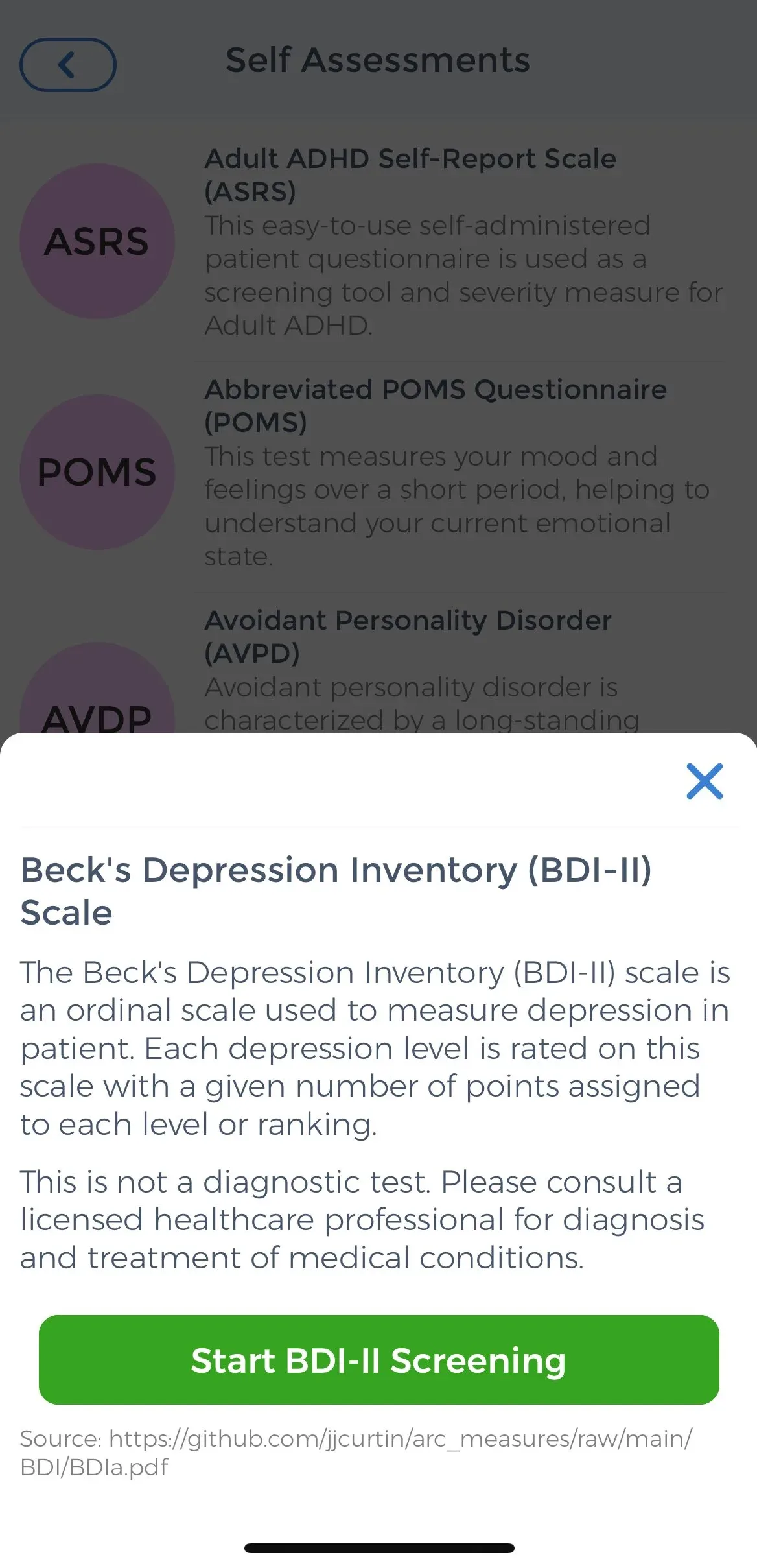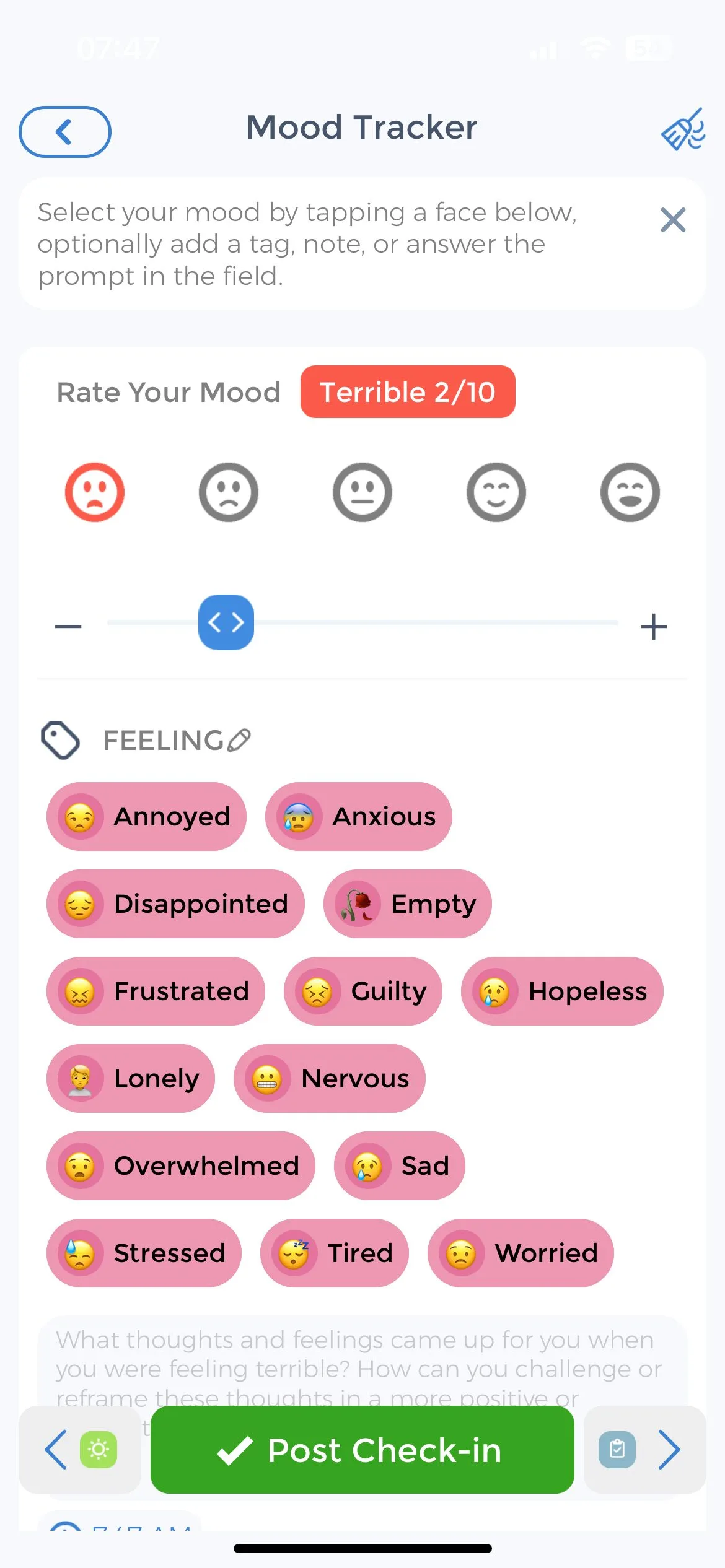
Depression is a complex mental health condition that can have a profound impact on a person’s overall well-being. It affects millions of individuals worldwide, causing feelings of sadness, hopelessness, and a loss of interest in activities they once enjoyed. While seeking professional help is essential in managing depression, there are also practical steps individuals can take at home to promote their mental well-being. One effective method that has gained recognition is the use of a depression journal.[1][2]
Understanding Depression and Mental Well-being
Before delving into the significant impact of a depression journal, it is crucial to have a clear understanding of depression and mental well-being. Depression is not simply feeling sad or down; it is a clinical condition or disorder that requires proper diagnosis and treatment. Depression affects the way a person thinks, feels, and behaves, often leading to social and occupational difficulties.
Defining Depression: A Clinical Perspective
Depression is characterized by persistent feelings of sadness, hopelessness, and a loss of interest or pleasure in activities. It affects individuals differently, with symptoms ranging from mild to severe. Common signs of depression include changes in appetite, sleep disturbances, difficulties in concentration, and even thoughts of self-harm or suicide.
The Role of Mental Well-being in Overall Health
 Mental well-being is an important aspect of overall health and plays a significant role in how we navigate through life’s challenges. It encompasses emotional, psychological, and social well-being, shaping how we think, feel, and act. A sound mental well-being allows us to cope with stress, maintain positive relationships, and make meaningful contributions to society.
Mental well-being is an important aspect of overall health and plays a significant role in how we navigate through life’s challenges. It encompasses emotional, psychological, and social well-being, shaping how we think, feel, and act. A sound mental well-being allows us to cope with stress, maintain positive relationships, and make meaningful contributions to society.
When it comes to mental health disorder and well-being, it is important to recognize that it is not a static state, but rather a dynamic process that requires ongoing attention and care. Just as we prioritize our physical health by exercising and eating well, we must also prioritize our mental health. This means engaging in activities that promote mental well-being, such as practicing mindfulness, seeking social support, and engaging in hobbies or interests that bring us joy.
Furthermore, mental well-being is closely linked to our physical health. Research has shown that individuals with poor mental well-being are more likely to experience physical health issues such as heart disease, diabetes, and chronic pain. This highlights the importance of taking a holistic approach to our well-being, addressing both our mental and physical health.[3]
The Concept of a Depression Journal
A depression journal is a great tool that individuals can use to document their thoughts, emotions, and experiences related to their depression journey. It provides patients a safe space to reflect on their feelings, track their moods and symptoms, and identify patterns or triggers. By putting pen to paper or utilizing electronic platforms such as the CareClinic App, individuals can gain valuable insights into their mental health and overall well-being.
The Purpose and Function of a Depression Journal
A depression journal serves multiple purposes in the context of mental illness and well-being. It provides an outlet for self-expression, allowing individuals to vent their emotions and thoughts freely. Writing in a depression journal can also help individuals gain clarity and perspective on their situation, giving them a sense of control over their emotions and experiences.
Furthermore, a depression journal can be a powerful tool for personal growth and self-awareness. By regularly documenting their thoughts and experiences, individuals can track their progress over time and identify areas of improvement. This self-reflection can lead to a deeper understanding of oneself and the development of coping mechanisms to manage depression more effectively.
Moreover, a depression journal can be a tool used to monitor progress. By tracking mood fluctuations, energy levels, and triggers over time, individuals can identify patterns and make informed decisions about their treatment plan. This information can be invaluable to clients when discussing their mental health with healthcare professionals, facilitating more effective treatment and intervention strategies.
Different Formats of Depression Journals
 Depression journals are available in various formats, allowing individuals to choose what works best for them. Some prefer traditional pen and paper, finding solace in the tactile experience of physically writing. The act of putting pen to paper can be therapeutic, allowing individuals to connect with their thoughts and emotions on a deeper level.
Depression journals are available in various formats, allowing individuals to choose what works best for them. Some prefer traditional pen and paper, finding solace in the tactile experience of physically writing. The act of putting pen to paper can be therapeutic, allowing individuals to connect with their thoughts and emotions on a deeper level.
For those who prefer a digital approach to self care, the CareClinic App offers an easy-to-use interface that allows for seamless journaling and advanced analytics. The app provides a convenient and accessible platform for individuals to record their thoughts and emotions on the go. With just a few taps, users can capture their experiences in real-time, ensuring that no important details are missed.
The CareClinic App is equipped with numerous features that make it an excellent tool for depression journaling. From customizable mood trackers to medication reminders and symptom logs, the free app offers a comprehensive suite of tools to support mental well-being. Additionally, its ability to generate easy-to-read reports can greatly benefit individuals seeking professional help, as it provides a detailed overview of their mental health journey.
Regardless of the format chosen, the most important aspect of a depression journal is its ability to provide a safe and non-judgmental space for individuals to express themselves. Whether it’s through pen and paper or a digital platform, the act of journaling can be a transformative practice that promotes self-discovery, healing, and personal growth.
The Connection Between Journaling and Mental Health
Research has shown a strong link between journaling and improved mental health. Writing in a depression journal can have significant psychological benefits, offering a therapeutic outlet for emotions and thoughts.
The Psychological Benefits of Writing
Journaling can help individuals process their emotions and gain a sense of clarity. By putting their thoughts and feelings into words, individuals can better understand themselves and their experiences. Writing can also serve as a form of self-reflection, promoting self-awareness and personal growth.
The act of journaling itself can be cathartic, providing a release for pent-up emotions and frustrations. It allows individuals to express themselves authentically, without fear of judgment or criticism. This type of emotional release can contribute to a sense of relief, reducing stress levels and improving overall well-being.
Moreover, journaling has been found to enhance creativity and problem-solving skills. When individuals engage in the practice of writing regularly, they stimulate their brain and body’s neural pathways, fostering new connections and expanding their cognitive abilities. This can lead to increased mental agility and a sharper mind.
How Journaling Affects the Brain
Beyond its psychological benefits, journaling has also been found to have a positive impact on the brain. Studies have shown that expressive writing can improve cognitive function and reduce symptoms of both anxiety disorders and depression. It has been suggested that journaling activates areas of the brain associated with emotional regulation and self-reflection, promoting a greater sense of emotional well-being.
Furthermore, research has revealed that the act of physically writing by hand, as opposed to typing on a keyboard, engages different parts of the brain. This unique engagement activates neural circuits that are involved in memory formation and retention. In other words, when individuals write by hand, they are more likely to remember and internalize the information they are recording.
Additionally, the rhythmic motion of writing can have a calming effect on the brain. The repetitive nature of the hand movements while writing can induce a state of relaxation and mindfulness, reducing anxiety and promoting a sense of tranquility. This meditative aspect of journaling can be particularly beneficial for individuals who struggle with stress or have difficulty quieting their minds.[4][5][6][7][8]
The Impact of a Depression Journal on Coping Mechanisms
One of the key benefits of keeping a depression journal is its ability to enhance coping mechanisms. By engaging in regular journaling, individuals who experience depression can develop a deeper understanding of their triggers, stressors, and coping strategies.
Enhancing Self-awareness Through Journaling
Writing in a depression journal allows individuals to become more self-aware of their thoughts, emotions, and behaviors. By recognizing patterns and identifying triggers, individuals can develop effective coping mechanisms. For example, if a specific situation consistently leads to feelings of sadness or anxiety, individuals can implement strategies to mitigate its impact or avoid it altogether.
Moreover, the act of journaling itself fosters self-reflection and introspection. As individuals pour their thoughts and feelings onto the pages, they gain a clearer understanding of their inner world. This heightened self-awareness can lead to a greater sense of control over one’s emotions and actions, empowering individuals to navigate through challenging times with more resilience.
Journaling as a Tool for Stress Management
Stress is a common factor in depression and can exacerbate its symptoms. By regularly journaling, individuals can identify stressors and develop strategies to manage them effectively. Journaling can act as a form of stress relief itself, providing an opportunity for depressed mood to unwind and decompress.
Furthermore, journaling offers a safe space for individuals to express and process their emotions. It serves as a non-judgmental confidant, allowing individuals to release pent-up negative feelings and find solace in their own words. This emotional release can significantly reduce stress levels and promote a sense of emotional well-being.
Additionally, by reflecting on past stressful situations and how they were managed, individuals can adopt healthier coping mechanisms and reduce their overall stress levels. Journaling provides a tangible record of personal growth and progress, enabling individuals to track and review their coping strategies’ effectiveness and make necessary adjustments along the way.[9]
The Role of a Depression Journal in Therapy
While a depression journal can benefit individuals on their own, it can also serve as a valuable tool within a therapeutic setting. Incorporating journaling into therapy sessions can enhance the therapeutic process and facilitate deeper self-reflection.
Incorporating Journaling into Cognitive Behavioral Therapy
Cognitive Behavioral Therapy (CBT) is a widely used therapeutic approach for depression. It focuses on identifying and challenging negative thought patterns and replacing them with healthier, more positive ones. Journaling can be a powerful adjunct to CBT, as it allows individuals to monitor and challenge their thoughts more effectively.
By recording negative thoughts and analyzing their validity, individuals can gain a clearer understanding of the cognitive distortions contributing to their own depression symptoms. Armed with this information, individuals can then work with their therapist to develop strategies for reframing these thoughts and promoting a more balanced perspective.
The Therapist’s Perspective on Depression Journals
Therapists recognize the benefits of depression journals as a therapeutic tool. These journals provide an opportunity for individuals to gather valuable insights into their mental health, facilitating more focused and meaningful therapy sessions and future on. By sharing their journal entries with their therapist, individuals can receive tailored guidance and support to address their unique challenges.
As a mental health professional, I strongly encourage the use of a depression journal as a means of promoting mental well-being. Whether in the form of a traditional pen and paper journal or the convenient CareClinic App, the act of journaling can have a profound impact on a person’s journey towards better mental health. By utilizing this simple yet effective tool, individuals can gain valuable insights, enhance coping mechanisms, and foster a sense of control over their mental well-being.
Remember, seeking professional help is essential in managing depression. However, in conjunction with therapy and other recommended treatments for mental disorders, the use of a depression journal can provide individuals with a valuable resource for self-discovery and personal growth.
Use the CareClinic App to Manage Mental Health Disorder
Take the first step towards enhancing your mental well-being with the CareClinic App, specifically designed to support your journey through depression. With features like mood tracking, symptom logging, and medication reminders, the app helps you identify patterns and triggers, enabling you to make informed decisions about your mental health.
The intuitive interface allows for easy documentation of your daily experiences, providing a clear picture of your progress and facilitating effective communication with healthcare professionals.
Download the CareClinic App to Track Depression Symptoms
By incorporating the CareClinic App into your mental health routine, you can expect a structured approach to managing depression, backed by data-driven insights. Experience the benefits of having a personal wellness companion right at your fingertips, one that empowers you with the tools to track, analyze, and improve your mental health.
Don’t wait to take control of your journey to recovery; install the app today and discover the positive impact it can have on your life.
References
- “Depression now affects 280 million worldwide – The Washington Post”. https://www.washingtonpost.com/health/2022/02/27/depression-worldwide/
- “How to Actually Stick to a Journaling Routine”. https://time.com/6266437/journaling-routine-health-benefits/
- “Why Mental Illness Can Fuel Physical Disease”. https://time.com/4679492/depression-anxiety-chronic-disease/
- “5 Benefits of Journaling for Mental Health”. https://positivepsychology.com/benefits-of-journaling/
- “Efficacy of journaling in the management of mental illness: a systematic review and meta-analysis – PMC”. https://pmc.ncbi.nlm.nih.gov/articles/PMC8935176/
- “Handwriting Boosts Brain Connectivity and Learning – Neuroscience News”. https://neurosciencenews.com/handwriting-learning-brain-connectivity-25522/
- “Thriving Together Series: The Mental Health Benefits of Journaling – Center for the Advancement of Well-Being”. https://wellbeing.gmu.edu/thriving-together-series-the-mental-health-benefits-of-journaling/
- “🏈 Axios Finish Line: Football diaries”. https://www.axios.com/newsletters/axios-finish-line-2db66190-b344-11ef-87b2-a9dc2540dffc
- “How to Use Journaling as a Coping Tool | NAMI: National Alliance on Mental Illness”. https://www.nami.org/person-with-mental-illness/how-to-use-journaling-as-a-coping-tool/
- “Why is Journaling important in CBT? – NABHS”. https://nabhs.org/why-is-journaling-important-in-cbt/


